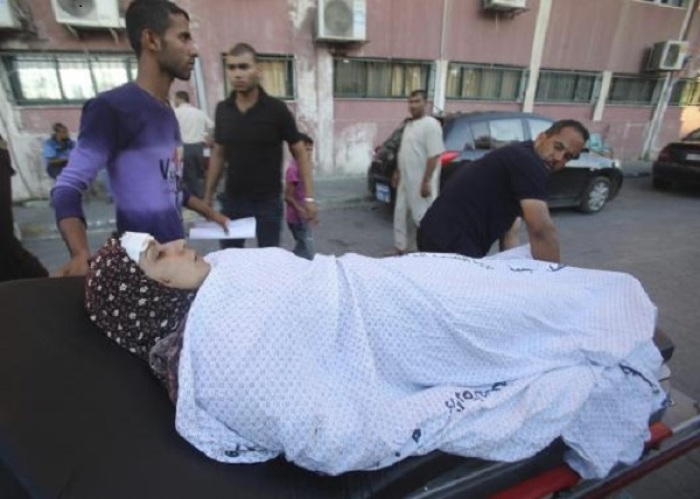UN to Investigate Civilian Deaths in Israel-Hamas Conflict, Illegal Weapons Storage at UN Facilities in Gaza

U.N. Secretary General Ban Ki-moon has announced that an inquiry is being set up into the high number of civilian deaths that occurred during the Israel-Hamas conflict over Gaza earlier this year. The inquiry will also investigate reports of Palestinian militants storing weapons at U.N. facilities.
"I look forward to a thorough investigation by the Israel Defense Forces of this and other incidents in which U.N. facilities sustained hits and many innocent people were killed," Ban said at the U.N. Security Council on Tuesday, according to BBC News.
"I am planning to move forward with an independent board of inquiry to look into the most serious of those cases, as well as instances in which weaponry was found on U.N. premises."
At least 2,100 Palestinians, most of whom were civilians, were killed during the conflict that began in July, along with 67 Israeli soldiers and six civilians in Israel. A long-term ceasefire was reached on Aug. 26, which has so far held.
Israel has blamed the civilian deaths on Hamas militants hiding out in residential areas and using people as human shields, while Hamas, on the other hand, has blamed Israeli aggression for the death toll.
Palestinian authorities have said that harsh economic sanctions imposed on the Gaza Strip have made life very difficult there. Israeli Prime Minister Benjamin Netanyahu has said, however, that his country had no choice but to retaliate with airstrikes following rocket attacks from Hamas.
"For 50 days this past summer Hamas fired thousands of rockets at Israel, many of them supplied by Iran. I want you to think about what your countries would do if thousands of rockets were fired at your cities," Netanyahu said at the U.N. assembly in New York at the end of September.
"Imagine millions of your citizens having seconds at most to scramble to bomb shelters day after day. You wouldn't let terrorists fire rockets at your cities with impunity, nor would you let terrorists dig dozens of terror tunnels under your borders to infiltrate your towns in order to murder and kidnap your citizens."
Israel has criticized previous U.N. inquiries into the Gaza conflict, especially over the news that Canadian international lawyer William Schabas was chosen to head the U.N. Human Rights Council's inquiry back in August.
Israel's foreign ministry spokesman Yigal Palmor said at the time that Schabas has a strong anti-Israel bias, which would reflect on the results. Schabas, who works as an international law professor at Middlesex University in England, rejected any such accusations.
In his statement on Tuesday, Ban added that "the clock is ticking" for humanitarian relief to reach needy families in Gaza as winter approaches.
Oxfam International and other relief groups have said that the "humanitarian needs remain enormous" in Gaza. The agency noted that over 100,000 people have seen their homes destroyed, and close to 25 percent of the population has no access to running water. Furthermore, schools, businesses and workshops have been damaged or completely destroyed, bringing life to a standstill.





























